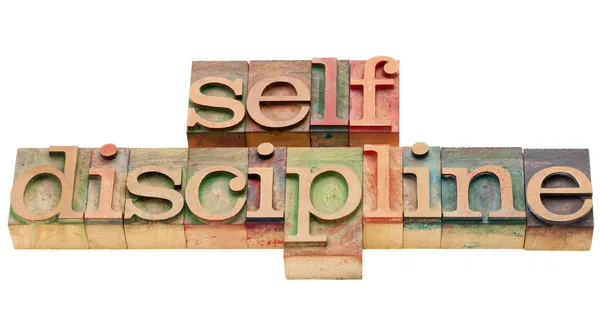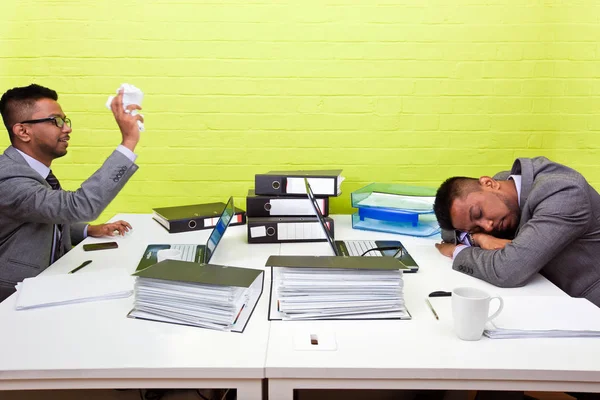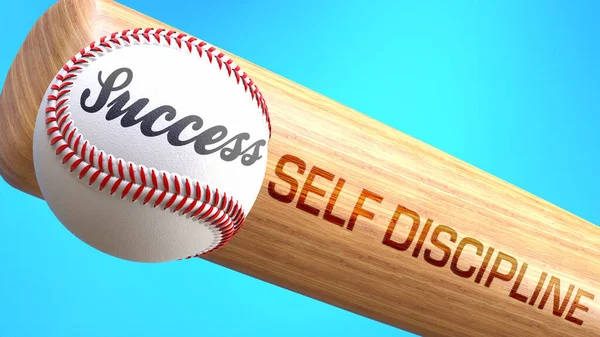- You too are striving to become self-disciplined?
- You too are unable to achieve your goal?
- Do you too feel lazy about following a regimen?
- You too are finding it difficult to take up a task?
You need to recover from this state, the sooner the better!

You need to be self-disciplined.
How do we define self-discipline?
The word self-discipline is made up of two parts. The noun “discipline” means “training that corrects, moulds, or perfects the mental faculties or moral character”.
The ‘self’ in self-discipline means you have the willpower to do these things on your own, without someone telling you to do them.
So, self-discipline means you control your feelings and even do hard things so you can be better and have more prosperity.
“Self-discipline is when your conscience tells you to do something and you don’t talk back.” —W. K. Hope
You can also use different words instead of self-discipline to better understand their meaning.
Some synonyms are:
- Self-control
- Self-regulation
- Self-mastery
- Will power
- Firmness of purpose
- Self-restraint
You need to understand besides a few other things, self-discipline holds the key, but how:
- You can develop self-discipline by identifying your motivations, and then writing down your goals so you can track your progress.
- Improve self-control by creating a consistent routine. This will help you get ahead of bad habits.
- Pick out a mantra or quote about self-discipline to help you stay motivated.

When we are young (read: kids) our parents are in a commanding position. They take the onus on them to discipline us like waking up and sleeping on time, going to school on time, doing homework on time, eating on time, etc., etc. When we grow up, gradually we start taking charge of our lives, our routines, our programs, our outings, travel, etc.
Parents come in a supporting role. This is when we start faltering. We become casual towards activities in life, as we try to cover up by skipping one activity for another and somehow manage. Till it is manageable, it is fine. But slowly we realize that things start getting out of hand…time management, resource management, and money management become a challenge. Here, comes the importance of self-discipline. You need to discipline yourself like a sportsperson where every minute is accountable. Every detail has a value!
So, what does self-discipline entail?
Developing self-discipline often involves controlling your impulses and emotions to better yourself. Setting goals to work towards achieving is a great first step to give you focus, but there are other steps you can take to keep from being derailed along the way. Like Olympic gold medallists, the same skills are often necessary to establish self-discipline: Overcoming fear and difficult circumstances and breaking bad habits.

“With self-discipline, almost anything is possible.” —Theodore Roosevelt
To begin with, you need to develop a daily routine to practice self-discipline. If you find yourself procrastinating, try planning your day. You can also be more productive if you identify the root of your procrastination. For example, our brains are wired to reward instant gratification over progress toward long-term goals. But if you remove distractions from your work area and break down your task into smaller parts, you have a stronger chance of succeeding.
It is important to make time for rest and self-care. Both Ms. Biles and Ms. Ledecky stressed the importance of the naps they take in between their daily training sessions. “I feel like without my naps, I wouldn’t reach a lot of my goals,” Ms. Biles said. This is also a great way to calm your nerves and relax your head and heart.
“Life is so uncertain that if you have certain things that you can always go back to, you will be better for it.” If you are unsure how to define who you are, you should ask yourself these questions.
- What or who do you hold dear?
- Who can you answer to?
- What do you think is worth fighting for?
You must introspect on all these aspects of life, select a goal, prepare a blueprint, and chart out an execution plan. For this, you must be self-disciplined as no external force can help you in the matter.
Self-discipline helps you to overcome those habits that have been impediments in your life’s discipline journey. If you start meditating regularly, you will start travelling inside. You will know what is obstructing you in life. It gives you the ability not to give up after failure and setbacks, develop self-control, provide the ability to resist distractions, and helps you to motivate yourself until you accomplish your goals.

Are you aware that if you lack self-discipline? This is not difficult to know as you have some symptoms which will help you to know this. What are these signs to look for? I have already mentioned these symptoms above and most important being: Procrastination and another being: Making excuses for falling short on things.
For example, promptness requires self-discipline. You likely lack self-discipline if you are often late to appointments, work, or other commitments but blame it on traffic, hitting the alarm too many times, or staying up late to finish a project. Instead, it would help if you took responsibility for leaving earlier, getting up on time, or not procrastinating at the start of your project. This way you see that these two are inter-related.
“We all have dreams. But to make dreams come into reality, it takes an awful lot of determination, dedication, self-discipline, and effort.” —Jesse Owens
Hence, begin your journey of self-discipline and be happy!
